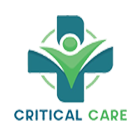- Home
- Departments
Departments Of Pain-Management
Pain-ManagementPain management involves a multifaceted approach to alleviate or minimize pain, whether acute or chronic, to improve the quality of life for individuals experiencing discomfort. Here's a breakdown of various aspects:
1. Assessment: Understanding the nature, intensity, and location of pain is crucial. Healthcare professionals use various tools such as pain scales, questionnaires, and interviews to assess pain and its impact on daily life.
2. Medication: Medications are often the first line of defense in pain management. They can range from over-the-counter drugs like acetaminophen and ibuprofen to prescription opioids, antidepressants, anticonvulsants, and muscle relaxants. The choice of medication depends on the type and severity of pain, as well as individual factors like medical history and risk of addiction.
3. Physical Therapy: Physical therapists employ exercises, stretches, manual therapy, and modalities like heat, cold, ultrasound, and electrical stimulation to reduce pain, improve mobility, and strengthen muscles.
4. Interventional Procedures: These include injections (such as nerve blocks, epidural steroid injections, and trigger point injections), nerve ablations, and implants (like spinal cord stimulators) to directly target and alleviate pain at its source.
5. Psychological Approaches: Techniques such as cognitive-behavioral therapy (CBT), mindfulness-based stress reduction (MBSR), relaxation techniques, and biofeedback help individuals manage pain by addressing the emotional and psychological aspects associated with it.
6. Alternative Therapies: These include acupuncture, massage therapy, chiropractic care, herbal remedies, and dietary supplements. While not always supported by scientific evidence, many individuals find relief from these complementary approaches.
7. Lifestyle Changes: Lifestyle modifications such as regular exercise, maintaining a healthy weight, improving posture, practicing good sleep hygiene, and avoiding activities that exacerbate pain can play a significant role in pain management.
8. Support Groups and Education: Joining support groups and attending educational sessions can provide valuable information, emotional support, and coping strategies for individuals dealing with chronic pain.
9. Multidisciplinary Approach: Pain management often requires a team-based approach involving various healthcare professionals such as physicians, nurses, physical therapists, psychologists, pain specialists, and alternative medicine practitioners to tailor a comprehensive treatment plan for each individual.
Effective pain management is not just about reducing pain intensity but also about enhancing overall well-being and function, allowing individuals to live fulfilling lives despite their pain.

